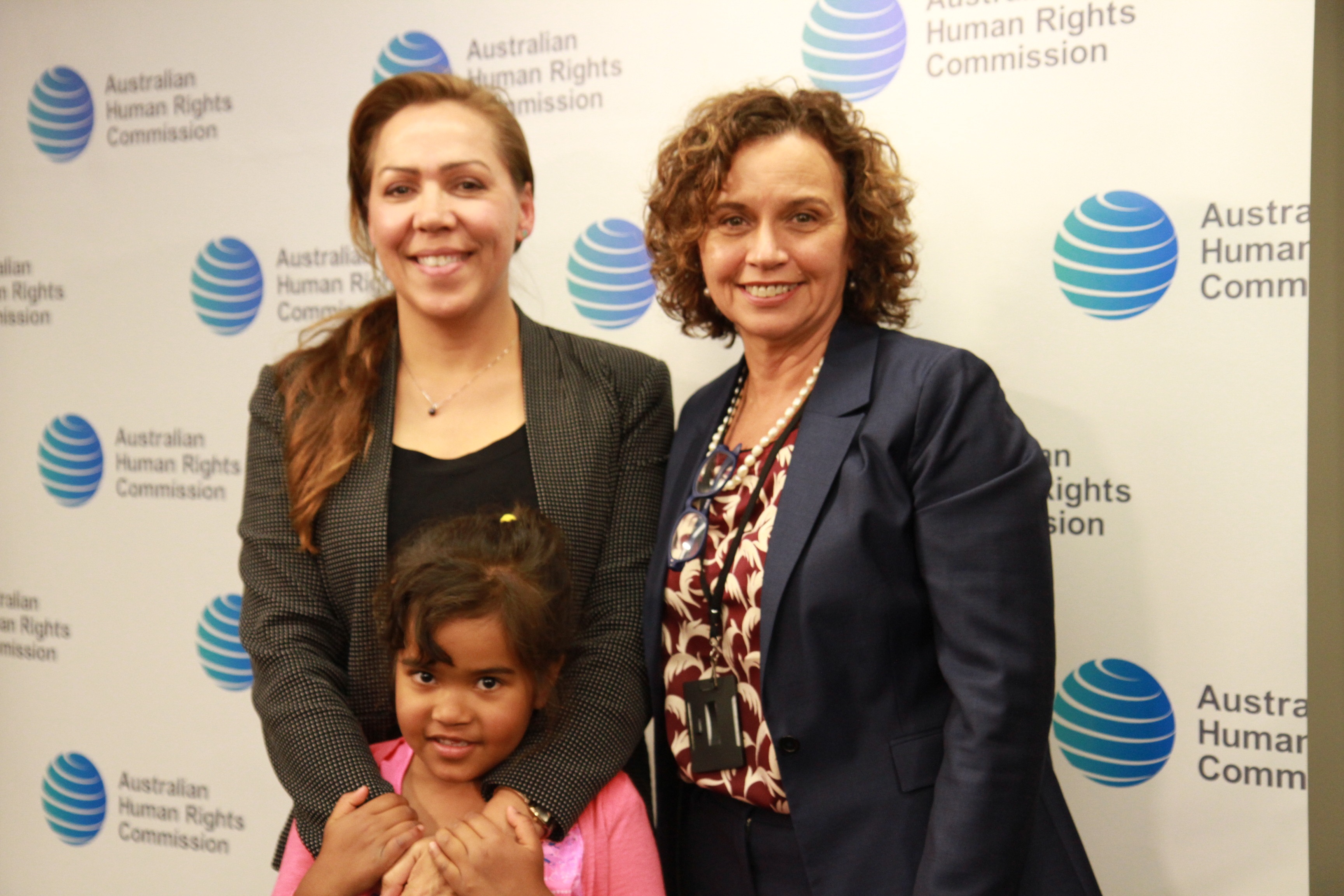Listen to us: we know what we need
Archived
You are in an archived section of the website. This information may not be current.
This page was first created in December, 2016
Decades of reports and inquiries have largely echoed what Indigenous leaders have long asked for: we want Aboriginal and Torres Strait Islander peoples to be at the heart of any reform agenda involving our people, says Robynne Quiggin.
The 2016 Social Justice and Native Title Report details the experience of human rights and native title by Aboriginal and Torres Strait Islander peoples in this country.
It is launched today in the knowledge that Indigenous Australians now make up 27 per cent of Australia’s prison population, despite making up only three per cent of our national population.
We can’t help but think of the 25 years that have passed since the Royal Commission into Aboriginal Deaths in Custody. Although there was a flurry of activity following the release of the Deaths in Custody report, the momentum was lost long ago and the numbers of Indigenous people who are incarcerated continues to rise.
This is intolerable.
Earlier this year, Romlie Mokak from the Lowitja Institute reflected on the lack of change in Indigenous Affairs policy. He quoted the anthropologist W.E.H Stanner, who said:
What may well have begun as a simple forgetting of other possible views turned into habit and over time into something like a cult of forgetfulness practised on a national scale. We have been able for so long to disremember the Aborigine that we are now hard put to keep them in mind even when we most want to do so.
Mokak then posed the question: “What price for that silence, for that inattention, that forgetting, that disremembering? What damage to the civic life of our nation?”
It is safe to say that the price paid by Aboriginal and Torres Strait Islander peoples is far too high.
Decades of reports and inquiries have largely echoed what Indigenous leaders have long asked for: we want Aboriginal and Torres Strait Islander peoples to be at the core of any reform agenda involving our people.
But inquiries and reports are not a substitute for action. They are meaningless if not backed by sustained implementation.
Indigenous people are self-determining and resilient. We can provide clear input on policy, based on evidence and experience. The question is, when will governments listen?
While we have seen progress across many fronts, including health, employment and education outcomes, the ‘disremembering’ that Mokak and Stanner recall all too often runs dangerously close to paternalism or neglect.
This year has not been all bad news. I am heartened by the coalition of Indigenous leaders from Aboriginal and Torres Strait Islander organisations who presented the Redfern Statement, calling for urgent action and proposed realistic strategies for addressing priority areas including disability, justice and violence prevention.
In this year’s Social Justice and Native Title Report, we assert that the key to addressing Indigenous social justice is through listening to, and valuing and implementing the solutions proposed by Aboriginal and Torres Strait Islander peoples.
This year’s Social Justice and Native Title Report also highlights the need to ratify the Optional Protocol to the Convention against Torture and other Cruel, Inhuman or Degrading Treatment or Punishment (OPCAT); and to continue with consultations about Constitutional recognition.
We are excited by the prospect of reform proposed by the Indigenous Property Rights Project. We know that self-determined economic development has been hampered by policies of dispossession, exclusion and control. This has constrained Aboriginal and Torres Strait Islander peoples use of their lands and resources.
The Indigenous Property Rights Project identifies a reform agenda that enables people to choose whether or not they wish to develop their property. If the choice is made to develop property, we want to ensure that the benefits of the Indigenous Estate can be realised and are maintained for Aboriginal and Torres Strait Islander peoples now and into the future.
The project, facilitated by the Australian Human Rights Commission and Indigenous-led, demonstrates that economic development on Indigenous land is possible and it can be profitable. But it must be driven by those Indigenous people with interests in the land, sea, waters and resources. It must also prioritise the security of these interests in any proposal.
We are also excited by the progress made by justice reinvestment programs such as the Maranguka project in Bourke.
Justice reinvestment and Indigenous property rights are both anchored in the foundational principles of the United Nations Declaration on the Rights of Indigenous Peoples. These projects are great examples of the resilience of our people. We are drivers of innovation, setting strategic priorities and maximising opportunities for economic and community development, setting policy directions and progressing cultural initiatives.
*Robynne Quiggin is the Deputy Aboriginal and Torres Strait Islander Social Justice Commissioner. She is pictured above right with Associate Professor Cheryl Kickett-Tucker. The 2016 Social Justice and Native Title Report is launched in Sydney today, 7 December 2016.

